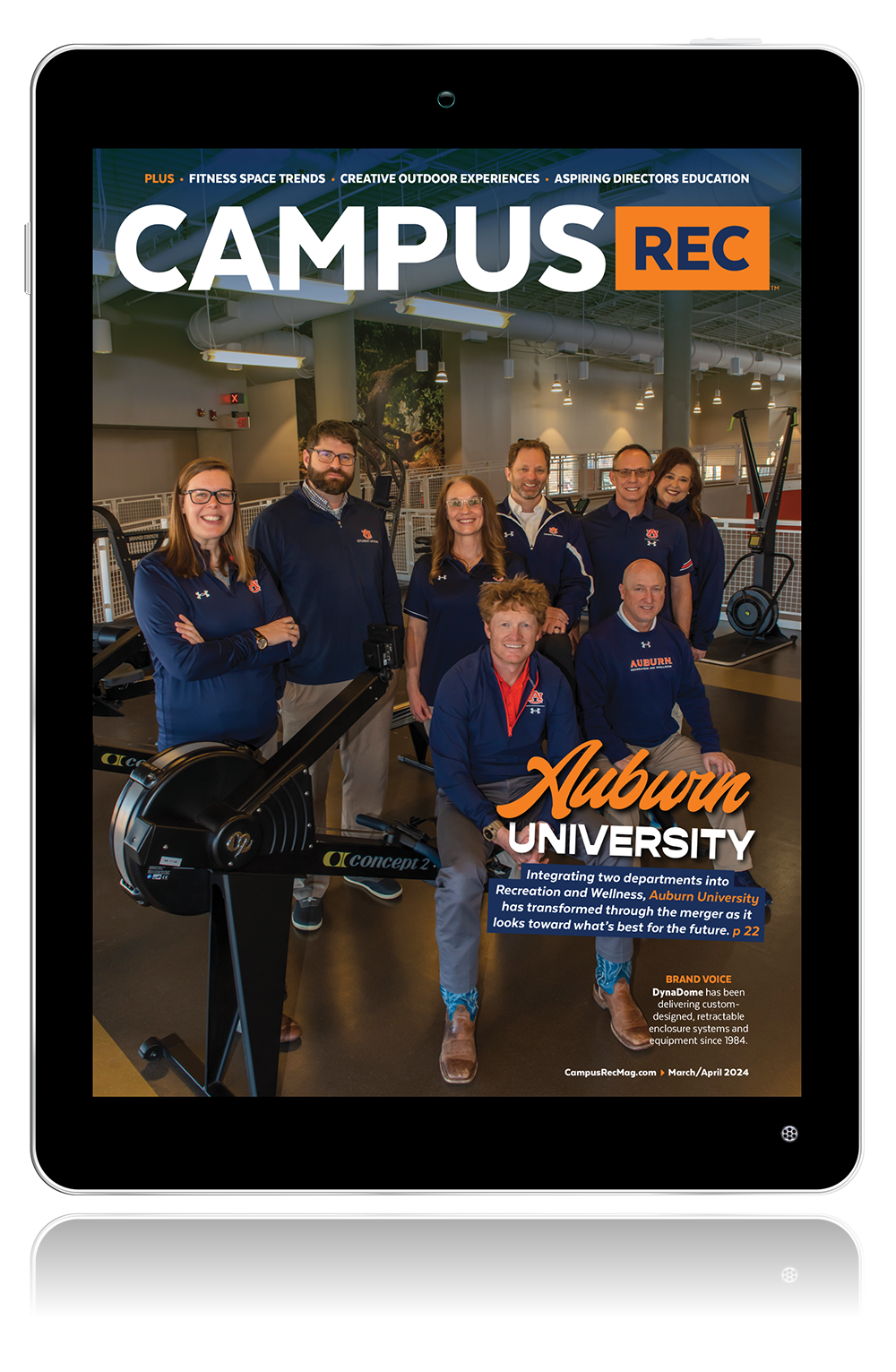Webster’s Dictionary defines inclusion as the action or state of being included within a group or structure. This definition matches up well with many of our department mission statements of offering something for all. Having offerings for an entire community is a difficult challenge. Despite our best efforts, a group within our campus community can leave with a feeling of being left out.
Unfortunately, there are some groups within our population that are more represented and therefore receive more privileges. The important part is to consider things from the perspective of all parties, especially the ones that are underrepresented.
Let’s take a look at the three concepts to know about inclusion:
The Impact of Pronouns
One thing to consider when thinking about inclusion is the impact of pronouns. Did you know there are over 60 sets of pronouns? This is a relatively new concept for me. I came across this when exchanging emails with a colleague in the field. The colleague had their pronouns listed at the bottom of their email signature, which I had never seen before. At the time, I didn’t understand the need for that. Upon discussion with my colleague, I discovered it’s a way to break down assumptions.
It is often easy to observe someone for the first time and make immediate judgements and assumptions. Inaccurate assumptions and false judgments often stem from our subjectivities. These explain who we are and what position we have within a given community. Specifically, that can range from our race and gender to religious and political affiliation. These subjectivities naturally shape our thinking.
Therefore, taking measures such as including your pronouns in an email signature, including them as part of your introductions for meetings and/or writing them on your badge at conferences can be effective for added inclusivity. Taking on this perspective about pronouns will lessen some of our assumptions and have more of an open mindset to various represented parties of our campus communities.
Making the Information Available
A good place to start is to conduct an audit on department webpages, program handbooks and facility signage to evaluate where inclusive information can be found. This puts yourself in the shoes of the underrepresented participant. Underrepresented populations want to be included in the facility/service/program policies and procedures. After completing the audit, if you are unable to easily find the information, it is important to fill in the gaps within the policies and procedures to create a more welcoming atmosphere.
Another strategy for addressing the needs of all participants is collaborating with on-campus partners. This collaboration can range from LGBTQ student organizations to the multi-cultural office. Examples of collaboration could be developing focus groups, cross-promotion of an event and/or hosting a related guest speaker as part of a staff training.
Finally, some departments across the field have created an inclusion page as part of their department website. The page typically contains a general inclusion policy statement that addresses their entire campus community. This embraces a welcoming and inclusive atmosphere for all.
Helpful Resources
Our field’s governing body, NIRSA, has a strong stance in support of inclusion. One of NIRSA’s strategic values is EDI – equity, diversity and inclusion – which is one of NIRSA’s six values listed on their website. More information on their values can be found online.
The primary source of research topics in the field of collegiate recreation can be found in the NIRSA publication of the Recreational Sports Journal. Current research topics can assist in identifying areas to address and enhance for more inclusive programs, services and facilities within your department.
Another source within collegiate recreation is the EDI Community of Practice page. This page allows you to post on the topics of equity, diversity and inclusion which gives colleagues around the field the opportunity to exchange ideas.
Outside of the field, another beneficial resource to use when it comes to developing inclusion-based policies and procedures is the NCAA inclusion page. NCAA is advanced in their resources in support of inclusive environments for their participants. Our field of collegiate recreation can continue to work together to develop resources and research in support of inclusive environments.
In conclusion, it is vital to continue to think about all of the represented parties on our campuses when it comes to inclusive environments within our departments. That being said, developing inclusive-based policies and procedures is not a one-size-fits-all strategy. Remember to investigate the topic accordingly and implement strategies that will work for your campus community. What may work at a small, private school may not work at a large, public school. Participants will recognize when administrators evolve with effective strategies and don’t simply rely on “this is the way we always have done it” mindset.










